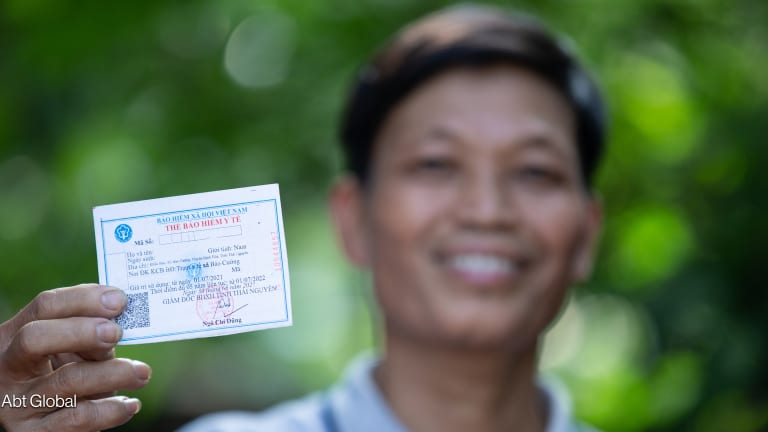
Civil society advocacy is crucial to helping countries commit to, plan, fund, implement, and learn from public health successes.
Appropriate policies and funding are at the foundation of sustainable, equitable, and effective health systems. And the policies and funding are most likely to be appropriate and sustainable when they receive input from local partners.
Among civil society’s strengths is the ability to bring the voices of people affected by policies directly to decision-makers. They can also convene dialogues between a broad range of local partners, including subject matter experts and local governments.
A coalition for epidemic preparedness and response in Kano State
This role was demonstrated in Kano, Nigeria’s most populous state, where civil society organizations came together to strengthen state-level capacity for epidemic preparedness and response, or EPR. A coalition called the Kano State Health Security Advocacy Team was convened by the Legislative Initiative for Sustainable Development, BudgIT, and Nigeria Health Watch. They successfully advocated for the adoption of a groundbreaking EPR budget line for the fiscal year 2021 — the first of its kind in any Nigerian state. The initial budget of 300 million naira — approximately $660,000 — was increased to 400 million naira in 2022 and 2023. In addition, the coalition helped secure EPR budget allocations in each of Kano’s 44 local government areas in the fiscal year 2021, which were increased by 50% in 2022. These funds help countries meet their National Action Plans for Health Security, which are country-owned plans based on the World Health Organization’s International Health Regulations, and can cover needs such as disease surveillance, health worker training, laboratory testing, disease surveillance, safe health facilities, and stronger laboratory systems.

A road safety movement in Mexico
Another example comes from Mexico, where more than 16,000 road traffic deaths occur each year. Advocacy by the Coalición Movilidad Segura, the “Safe Mobility Coalition,” led to the adoption of a constitutional amendment in 2020 establishing a right to mobility and road safety, with lessons learned that helped the coalition achieve the passage of the General Law on Mobility and Road Safety in 2022. The law contains minimum requirements on major risk factors including child restraint systems, helmet and seatbelt use, and speed limits consistent with World Health Organization recommendations. While spearheaded by CSOs, this advocacy movement included experts, activists, and families who have lost a loved one in road traffic accidents.
Child drowning prevention in Bangladesh
In Bangladesh, where drowning is the leading cause of death for children under 5, a community child care program reduced drowning deaths by over 80% among children under 4 years of age. With donor funding coming to an end, the Society for Media and Suitable Human-communication Techniques, the Campaign for Popular Education, and other CSOs built public awareness through the media and advocated for the government to commit to sustaining the project. In 2022, the Bangladeshi government approved the allocation of government funds to expand the program by threefold to support 8,000 community-based child care centers and provide funds for survival swimming lessons for 360,000 children aged 6 to 10 years old, as part of a three-year integrated national child drowning prevention initiative.
The Pro read:
Does localization actually work? We look for evidence
Localization is one of the key issues being talked about in the development community. But can we prove that it produces better results? And do we have the data we need to make sure it's as effective as possible?
Principles for policy success
Policies both reflect and set countries’ priorities, laying out an agenda for government action. In the health sector, policy shapes the environments that influence people’s health, defines public health systems, and sets and directs a country’s health priorities and programs. Civil society can contribute to stronger policies by ensuring that they:
• Are evidence-based, including evidence that captures local needs and priorities.
• Reflect and address the particular needs and contexts of the country or community.
• Incorporate the knowledge of people who are most likely to be affected — as well as people who are at risk of being excluded if implementation plans don’t take them into account, such as because of their age, gender, or disability.
• Advance health equity by addressing structural barriers to inclusion and access.
• Become sustainable, by engaging the responsible parties and agencies from the beginning and designing policies with implementation and enforcement in mind.
Local and national civil society organizations know their countries and understand their social, cultural, and political systems. By mobilizing their communities, they can build sustainable political will for important issues, ensure policies are fit to local context and priorities, and promote domestic resource mobilization that is both accountable and sustainable. Political will cannot be imported or imposed; it must be fostered from within.
Visit our website for more information on civil society advocacy.
Dig into Roots for Change, a series examining the push towards locally led development.
This piece is sponsored by Global Health Advocacy Incubator as part of our Roots for Change series. Click here to learn more.










